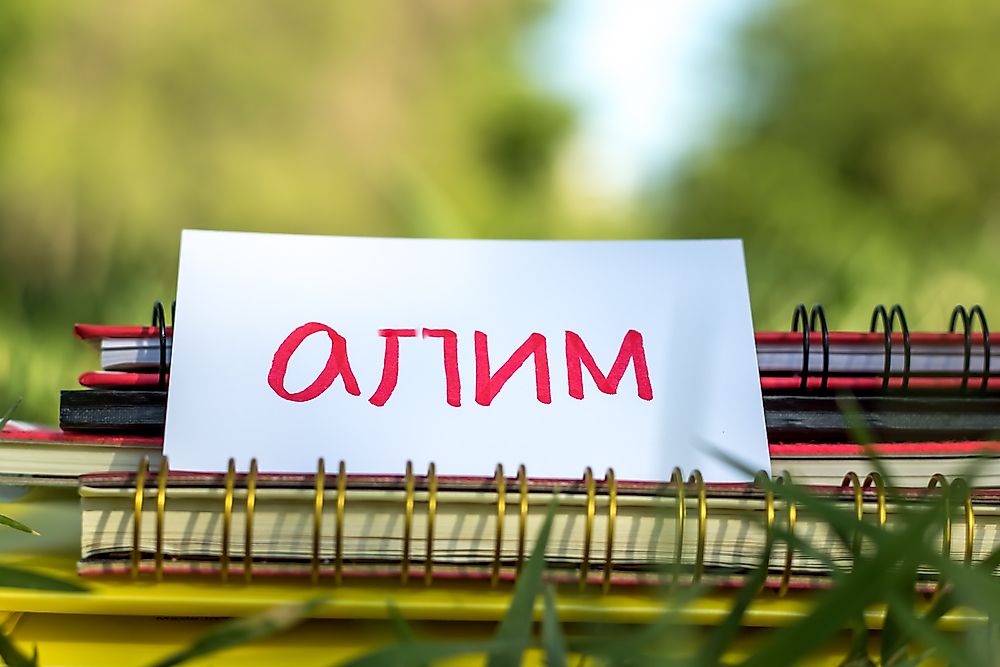What Languages Are Spoken In Mongolia?

95% of Mongolia's population speaks Mongolian. Mongolian is the most widely spoken of the Mongolic languages. 5.2 million people speak Mongolian. 56% of the world's speakers of the Mongolian language live in Mongolia
Mongolic Languages Spoken In Mongolia
While Mongolian dominates are a spoken languages in Mongolia, this is not the only Mongolic language spoken in the nation. There are two Mongolic languages spoken in Mongolia, Oirat and Buryat. The Oirat language is spoken the most in western Mongolia. Oirat is becoming an endangered language in Mongolia. This is a result of economic and government policies in Mongolia.
Buryat is spoken in the far north of Mongolia near the border with Russia. In Russia, Buryat is spoken in the Buryat Republic, a federal subject of Russia. The Buryat Republic shares its southern border with Mongolia. The Buryat language being spoken and where it is spoken reflects geographic proximity.
Influence Of The Soviet Alignment In Mongolia
Russian is one of the most widely spoken foreign languages in Mongolia. This reflects both history and geography. Mongolia shares its northern border with Russia. In 1924, Mongolia became the second Communist country in the world after Russia (then the USSR). Mongolia was closely aligned with the Soviet Union. Though technically a sovereign nation, Mongolia operated as a satellite state of the Soviet Union until 1990. It was under heavy military and political influence from the Soviet Union. It maintained a status as a satellite nation of the Soviet Union longer than any other Soviet-aligned nation. Some Russians did live in Mongolia during the Communist era. Russian influences played a role in Russian being spoken in Mongolia.
The Influence of Soviet alignment not only reflects in Russian being spoken, but on the Mongolian language itself. The Mongolian language has its own alphabet. However, the Cyrillic alphabet is far more widely used for writing in Mongolian. This reflects the introduction of the Russian Cyrillic alphabet into Mongolia.
Some Mongolians speak German as a result of studying in former East Germany during the Communist era. East Germany was part of the Eastern Bloc, aligned with the Soviet Union. Mongolia's alignment with the former Soviet Union played a role in some Mongolians learning German.
Influence Of The English Language In Mongolia
English is another widely spoken foreign language in Mongolia. For many Mongolians, English is replacing Russian as the most common foreign language spoken. This is a reflection of Mongolia in its post-Communist times. Among many, there is a desire to participate in the global market. Learning English is seen as a way to participate. Many people are learning and speaking English world wide as a second language. Mongolia is included in this aspect.
Turkic Languages Spoken In Mongolia
Some Turkic languages are spoken by a small portion of Mongolia's population. Kazakh and Tuvan are among those Turkic languages spoken in Mongolia. Kazakh is spoken in the far west of Mongolia. This reflects Mongolia's geographic location. Although Kazakhstan doesn't border Mongolia, both countries are very close to each other. A tiny portion of China separates the two nations. Part of Mongolia borders Russia's Tuva Republic. Tuvan is spoken by small proportion of Mongolia's population.
Korean Language Speakers In Mongolia
In addition to Russian, German, and English, Korean is another foreign language being sought after by some Mongolians. In recent years, thousands of Mongolians have immigrated to South Korea. South Korea has the world's largest population of Mongolians living abroad.
The languages spoken in Mongolia have been shaped by location, cultural geography, as well as history. The Mongolian language being dominant reflects cultural geography. Proximity to Russia, as well as Soviet history has shaped languages such as Russian, German, and Buryat being spoken in Mongolia. Migration as well as a desire to be a part of the global economy plays a role in more people learning English and Korea.











